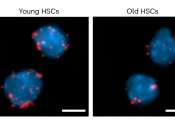Barcoding tool for stem cells: New technology that tracks the origin of blood cells challenges scientific dogma
A 7-year-project to develop a barcoding and tracking system for tissue stem cells has revealed previously unrecognized features of normal blood production: New data from Harvard Stem Cell Institute scientists at Boston Children's ...








